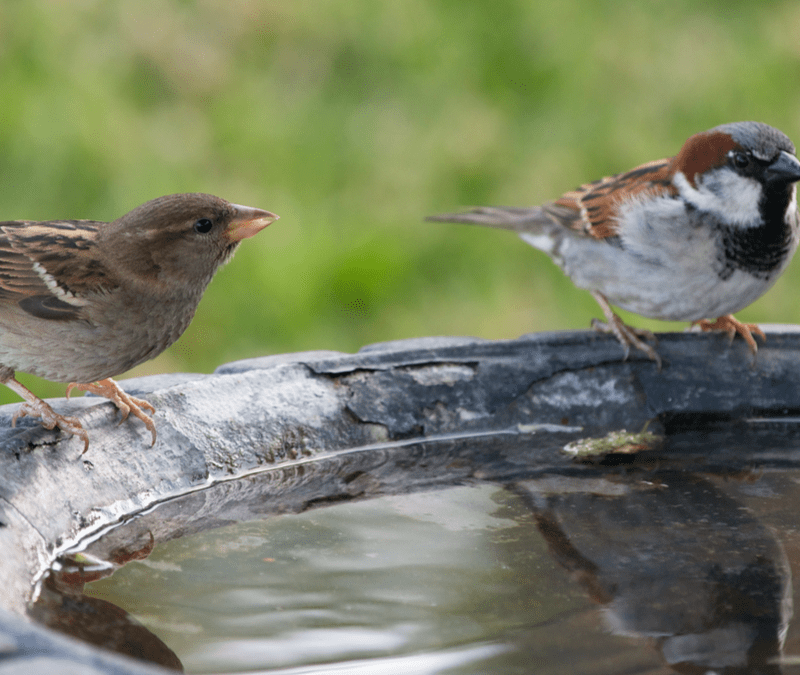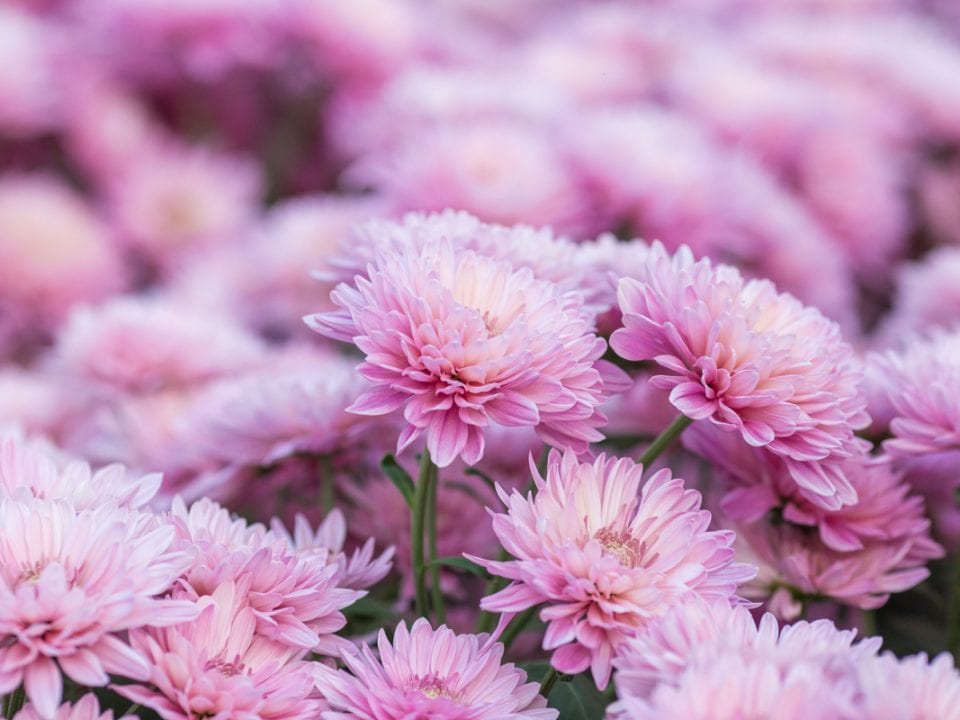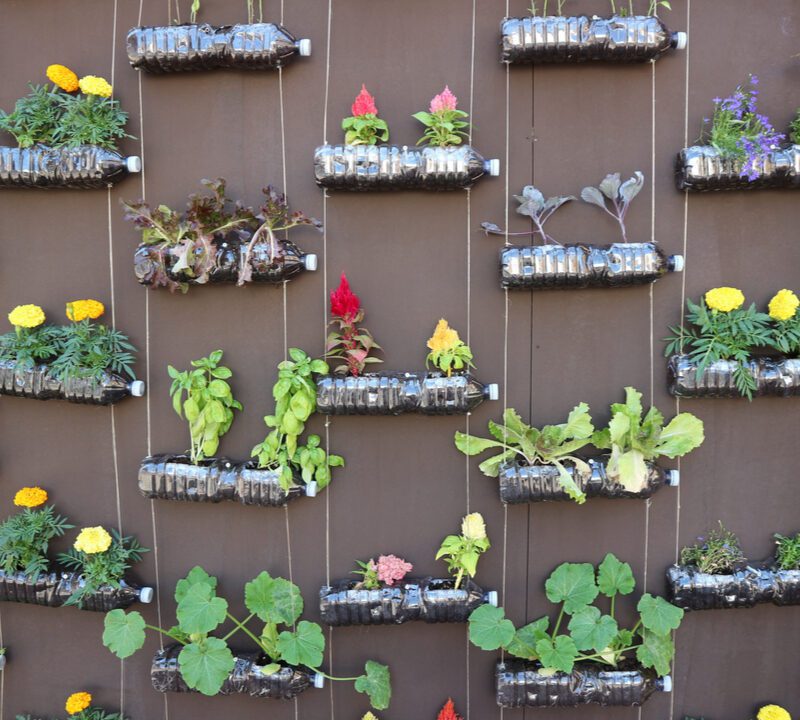- America's #1 lawn care company.
- 225-752-7252
Stop Mosquitoes From Taking Over Your Birdbaths!

Which Type of Grass Should I Plant on My Lawn?
August 9, 2021
Protect Your Ash Trees From the Emerald Ash Borer Beetle
September 7, 2021If you love birds as much as I do, you probably have a bird feeder in your backyard, maybe two. You may even have a birdbath, so your beloved feathery friends have a place to take a drink or cool off. With the warmer temperatures in Mississippi and Louisiana, hydration is important, even for our wildlife. It also means we are constantly dealing with mosquitoes. These irritating insects not only carry harmful diseases but are just plain annoying when they bite and cause that stinging itch.
Over the years, I have fought with these pesky creatures and their attraction to my birdbath. No matter how many times I dump out the water, the mosquitoes always find a way back. Unfortunately, anything that holds water also makes the perfect environment for bloodthirsty mosquitoes. This is because female mosquitoes are always on the lookout for stagnant water to lay their eggs. Over the years, I have discovered a few tried and true ways to keep these winged vampires out of my birdbath while keeping my bird friends hydrated and happy. Here are a few of them.
Water Agitators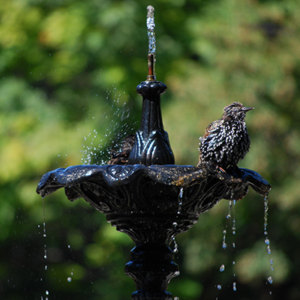
Mosquitoes only breed in stagnant water, not water that is moving. Therefore, if you can find a way to keep the water moving, mosquitoes won’t bother your water source. Fortunately, there is a device on the market called an agitator. It does precisely that, agitates the water, keeping it in constant motion. The birds will not be bothered by it, and the mosquitoes will steer clear of your birdbath.
Give Your Birdbath A Good Cleaning
It has always been important to clean your birdbaths and feeders, however, recent news of statewide salmonella infections found in wild birds across both Louisianna and Mississippi makes it even more important. According to the Louisana Department of Wildlife, State Veterinarian Dr. Jim LaCour, “Many of the deaths have been associated with bird feeders or birdbaths. Typically, an infected bird has picked up the infection from either a bird feeder or birdbath. That, in turn, spreads the bacteria among other birds.’’ The best way to protect your birds and a way to help keep mosquitoes out is through a thorough cleaning. It doesn’t have to be anything fancy. You can simply use the following everyday household items:
- Garden Hose
- Cleaner (Bleach Solution)
- Rubber Gloves
- Wire Brush
- Wire Brush
To make the cleaning solution, mix one part chlorine bleach with nine parts water and mix in the birdbath basin. You may want to clean the birdbath on gravel or concrete as the solution will kill your grass if spilled. For a non-bleach mixture, mix one-part white vinegar with nine parts water in the basin. Use the mix and wire brush to scrub and clean all surfaces of the basin by following the instructions below.
- Remove the basin and dump out the water
- Use the hose to give it a good rinse
- Use the cleaning solution to scrub clean
- Use the wire brush to remove stuck-on seeds or other debris
- Allow the cleaning solution to soak for several minutes
- Pour out and rinse thoroughly with the garden hose
- Allow to dry, place the basin back on the pedestal, and fill with water
Use Mosquito Dunks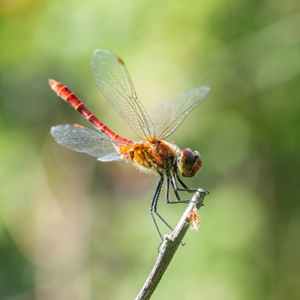
No, this is not something you buy at Dunkin Donuts, although mosquito dunks do look like tiny donut-shaped pellets. Mosquito dunks contain a naturally occurring soil bacterium called Bacillus thuringiensis israelensis (Bti). Bti is an active microorganism that produces toxins that kills mosquito larvae. It is considered safe, non-toxic, and does not harm other wildlife or the birds you are trying to hydrate. Mosquito dunks typically work within hours and last up to 30 days.
Mosquito Bits
These are pretty much the same thing as mosquito dunks; however, they differ in size and are formulated to remove mosquito larvae much faster. Mosquito dunks work slowly, taking a few hours to release its Bti. They do, however, last for up to 30 days. In contrast, bits remove the mosquito larvae in just minutes, but their effect is over in seven to 14 days, and you must use them more often.
Use Mosquito Predators to Protect Your Birdbaths
While humans hate mosquitoes, there are a few species that love them. Bats, dragonflies, swallows, and fish are all-natural mosquito hunters and love to feed on adult mosquitoes and larva. Place several birdhouses and bat houses around your yard to make mosquitoes think twice before choosing your yard.
Protect Your Yard, Family, and Birdbaths With Mosquito Control Through TruGreen MidSouth
So, you’ve discovered ways to help keep your birdbaths free from the wrath of these evil insects, but why not protect your yard, family, and pets as well. TruGreen MidSouth offers a monthly mosquito control program throughout the year that significantly reduces the overall mosquito population on your property, helping you and your loved ones enjoy your backyard again.
Contact us today to learn more about our mosquito control program. If you live or work in Louisiana, reach out to us via our online contact form or call us at 1-225-465-0665. In Mississippi? We have a special online contact form for you, or you can give us a call at 1-662-330-1330.
Did you find the above article interesting? Don’t stop here. We post two informational blogs a month on all things lawn care, tree and shrub care, and pest control. Follow it now and stay up to date!
Social media guru? Me too! Join us on Facebook. We have a page dedicated to our friends in Louisiana and to our friends in Mississippi. Hop on and like us now!

